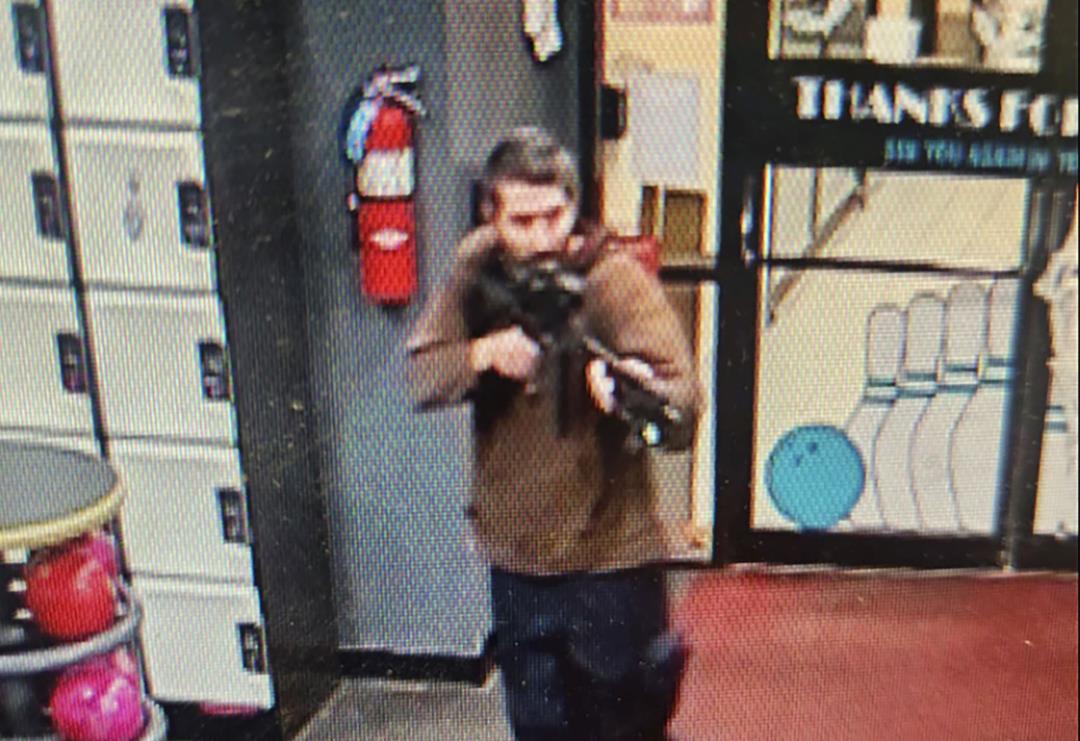California
California moves closer to banning additives found in Flamin’ Hot Cheetos, Twinkies from schools

California lawmakers have voted to ban food additives linked to behavioral issues in kids from school lunchrooms.
That means snacks like Flamin’ Hot Cheetos, Twinkies and more will no longer be allowed in school cafeterias across the state. Stores may still sell the food products, though, under the first-of-its-kind legislation, called the California School Food Safety Act.
The controversial ingredients include food dyes Blue 1, Blue 2, Green 3, Red 40, Yellow 5 And Yellow 6, which give color to snacks like Doritos, Froot Loops and Fruity Pebbles cereals and Jolly Ranchers candy. Advocates for the ban argue the additives have no nutritional value, are used solely for superficial purposes, and can cause health problems.
Red 3 has been found to cause cancer in animals and Red 40, Yellow 5 And Yellow 6, have been found to be contaminated with carcinogens like benzidine, which can increase one’s risk of developing cancer, according to a 2012 study from the National Institutes of Health.
California Assemblymember Jesse Gabriel, the bill’s author, said the legislation could prompt changes in how these types of “dangerous” foods are marketed to children beyond California, and could even lead to companies changing the way they formulate such snacks.
“As a lawmaker, a parent and someone who struggled with ADHD, I find it unacceptable that we allow schools to serve foods with additives that are linked to hyperactivity and neurobehavioral harms,” Gabriel said in a statement Friday. “This bill will empower schools to better protect the health and well-being of our kids and encourage manufacturers to stop using these harmful additives.”
Indeed, the California Environmental Protection Agency’s Office of Environmental Health Hazard Assessment found in 2021 that “consumption of synthetic food dyes can result in hyperactivity and other neurobehavioral problems in some children.”
California’s State Superintendent of Public Instruction Tony Thurmond said the bill sets new standards for school meals.
“Healthy, safe school meals are foundational to our students’ well-being and ability to learn. As someone who depended on school meals growing up, I know how critical it is that our children receive food at school that is nutritious and is never harmful,” Thurmond said Thursday in a statement. “AB 2316 is an important step forward to ensure that California’s schools are healthy and equitable learning environments for all.”
The bill, which is now headed to Gov. Gavin Newsom’s desk, does not ban particular food products, but takes aim at the six substances linked to behavioral issues in kids. It goes into effect Dec. 31, 2027.
Neither Frito Lay, which makes Cheetos, Doritos and other snack chips, nor Twinkies-maker Hostess, immediately responded to CBS MoneyWatch’s requests for comment.

California
Shake Shack closing 5 Southern California locations, citing underperformance

The burger chain Shake Shack is closing five locations in Southern California following a company announcement that a “small group” of closures will happen by the end of September.
Nine restaurants are set to close across three states, including five in Southern California and another Northern California location.
Shake Shack executives said various factors, including underperformance, led to the decision to close a handful of locations while opening more Shack locations is planned.
“Shake Shack is in a period of considerable growth with a plan to open 40 new company-owned Shacks and 40 more licensed Shacks this year,” said Shake Shack CEO, Rob Lynch.
“We remain focused on supporting our team members through this transition and look forward to continuing our growth, opening many more locations across the country.”
Two locations will close in Texas and one in Ohio with the California closures happening in Culver City, Bunker Hill, Koreatown, Silverlake, Westfield Topanga, and up north in Oakland.
Shake Shack opened its original location in New York City in 2004 and has expanded to over 510 locations, including 330 across 33 states and the District of Columbia, as well as 180 international locations.
Torrance welcomed California’s first Shake Shack drive-thru this month, the brand’s 36th drive-thru operation in the nation.
Complete closure list:
- Oakland, California
- Bunker Hill, California
- Downtown Culver City, California
- Koreatown, California
- Silverlake, California
- Westfield Topanga, California
- Polaris, Ohio
- Houston Galleria, Texas
- Montrose, Texas
California
Global IT outage in July exacerbated California fuel storage issues, says storage broker

By Shariq Khan
NEW YORK (Reuters) – Last month’s CrowdStrike IT outage that grounded scores of flights created new problems for California’s fuel market, forcing U.S. traders to store jet fuel destined for the state on waterborne tankers, storage broker The Tank Tiger told Reuters this week.
The outage exacerbated existing constraints on petroleum storage in California, where policies aimed at ending fossil fuel usage have made it harder to setup new oil and gas infrastructure.
“When it comes to petroleum products storage in California, there has been no room at the inn for several years,” Ernie Barsamian, founder of U.S. terminal storage clearinghouse, The Tank Tiger said on Wednesday.
But California’s location on the U.S. West Coast makes it a major petroleum trading hub, keeping demand high. That opens the region to outsized fuel price shocks during periods of disruptions, such as the IT outage or refinery snags.
“Despite prevailing demand, permitting for new storage tanks (in California) is a cumbersome process,” Barsamian said. As a result, storage costs in California are twice as high as trading hubs in New York Harbor or Houston, he said.
California’s Certified Unified Program Agency, responsible for implementing the state’s Aboveground Petroleum Storage Act Program, did not immediately respond to a request for comment.
When flights were grounded in July, the unconsumed jet fuel could not find a home in California, and had to be re-positioned to waterborne locations off the coasts of Houston and New Orleans, Barsamian said.
Traders use ships as storage only as a last-resort when land storage is full or unavailable, as keeping the vessels in use longer delays their journeys, tightening the market and increasing costs.
Jet fuel inventories in onshore tanks dotting the U.S. West Coast shot up to over 12 million barrels in the week ended July 26, a record high. The CrowdStrike outage began on July 19.
Strong demand for the product has led to West Coast imports increasing significantly this year, analysts at ship-tracking service Kpler said. That has kept inventories higher than normal this year.
West Coast imports from within the U.S. and outside have averaged about 135,000 barrels a day this year, about 25,000 bpd higher than last year, Kpler data showed.
West Coast jet fuel stocks stood at 11.8 million barrels last week, nearly 28% higher than last year.
(Reporting by Shariq Khan in New York; Editing by Aurora Ellis)
California
Celebrate California's wildlife with event in Fresno

Thursday, August 29, 2024 2:03PM
The Fresno Chaffee Zoo will join forces with the San Joaquin River Parkway and Conservation Trust to celebrate California’s wildlife.
FRESNO, Calif. (KFSN) — The Fresno Chaffee Zoo will join forces with the San Joaquin River Parkway and Conservation Trust to celebrate California’s wildlife through a day of special events and activities.
There will be two sets of hands-on activities taking place this Saturday, August 31, at the River Center on Old Friant Road near Woodward Park.
It’s followed by a celebration for all event participants.
There will also be food trucks on site for lunch options, as people learn more about local conservation organizations on site and enjoy free ice cream and popsicles.
This event is free!
Copyright © 2024 KFSN-TV. All Rights Reserved.
-

 Connecticut7 days ago
Connecticut7 days agoOxford church provides sanctuary during Sunday's damaging storm
-

 Technology1 week ago
Technology1 week agoBreakthrough robo-glove gives you superhuman grip
-

 News1 week ago
News1 week agoEx-officer convicted in George Floyd's killing is moved to new prison
-

 Movie Reviews1 week ago
Movie Reviews1 week agoThe Substance – NZIFF Closing Night 13th Floor Film Review
-

 News1 week ago
News1 week agoVideo: D.N.C. Holds Enthusiastic Roll Call to Nominate Harris
-

 News1 week ago
News1 week agoBefore Mass Shooting, Army Supervisors Ignored Advice
-

 World1 week ago
World1 week agoWhat has caused the cholera outbreak in Sudan?
-

 News1 week ago
News1 week agoVideo: Biden’s Speech at the Democratic Convention















